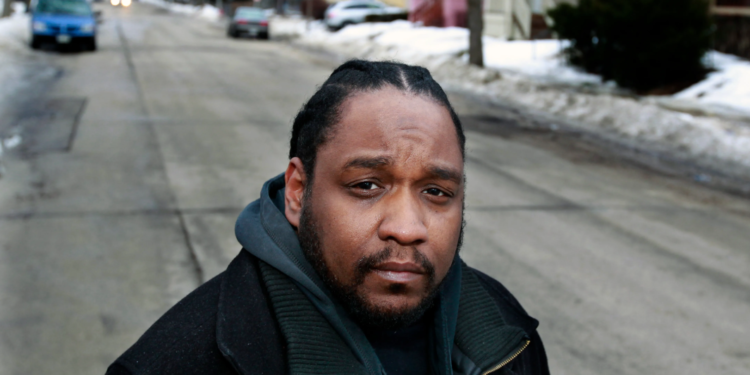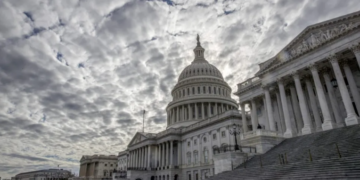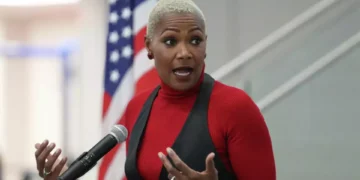Dec 16, 2024 Story by: Editor
The 2024 presidential election revealed a notable shift in voting patterns among Black Milwaukeeans, with fewer supporting the Democratic Party compared to previous elections. This aligns with national trends indicating increased backing for President-elect Donald Trump among Black men.
Recent data highlights these changes:
- The Democratic margin in Wisconsin’s predominantly Black wards declined from 81 points in 2020 to 79 points in 2024, according to John Johnson, a Marquette Law School fellow.
- Black voter support for Democrats has steadily dropped since Barack Obama’s presidential campaigns, even accounting for population changes and voter turnout.
- Nationally, about 30% of Black men under 45 voted for Trump, twice the percentage from 2020, per the Associated Press. The NAACP reported over 20% of Black men under 50 supported Trump.
Trump’s growing support among Black voters is evident in Wisconsin, where his vote share in majority-Black wards increased by 2% compared to 2020 and by 3% compared to 2016, Johnson noted. Comprehensive voter breakdowns by race, gender, and age are expected in the coming months.
Perspectives from Milwaukee’s Black Leaders
The Journal Sentinel interviewed Black male community leaders in Milwaukee to understand the voting shift.
Rob “Biko” Baker, a Milwaukee native and faculty member in African and African Diaspora Studies at the University of Wisconsin-Milwaukee, emphasized that polling still shows strong Democratic support among Black voters — higher than any other demographic group, despite Trump gaining more Latino male voters.
“We have to be a little cautious with exit polling and polling in general because everybody’s sort of seen the downfall of the poll,” Baker said. He noted changes among his students, where political discussions are encouraged.
Tory Lowe, a community activist and radio host at 101.7 The Truth, shared his reasons for supporting Trump, despite identifying as an independent.
“I had a chance to interview Trump, and I had a chance to endorse Trump, and I never did, because I’m an advocate,” Lowe said. “I don’t want to get involved in all of that; I’m not MAGA. … I voted for Trump because I don’t agree with nothing on the left.”
Lowe criticized local Democratic politicians for their handling of issues like the COVID-19 pandemic, benefits for undocumented immigrants, and the promotion of an “LGBT agenda.”
“Most people believe in man, woman, and child,” he stated.
The Rev. Greg Lewis, executive director of Souls to the Polls Wisconsin, expressed concern that the Democratic Party has taken Black communities for granted.
“People start to fall in love with folks who do them wrong,” he said, likening the trend to Stockholm Syndrome.
Key Issues: Economy, Immigration, and Stimulus Checks
Black voters’ priorities often stem from shared experiences of systemic racism, disparities in education and healthcare, and economic challenges. Many voters cited the economy as the most critical issue, with varying views on which party better addresses financial concerns.
“Black people, many of us, are naturally conservative,” Baker said. “But overall, people have always voted with their pocketbooks.”
Immigration policy also played a significant role. Baker noted fears among Black men that undocumented immigrants compete for working-class jobs. Trump’s promise to use the military to mass-deport undocumented immigrants resonated with some voters.
At the same time, economists warn that mass deportations could harm industries like agriculture. The claim that undocumented immigrants take jobs from native-born Americans remains contested.
Lewis emphasized the complexity of immigration’s impact on Black communities, citing a lack of pathways for Black migrants to the U.S. historically.
Stimulus Checks and Community Investment
Stimulus checks distributed during the COVID-19 pandemic also influenced young Black voters. Some viewed Trump as instrumental in securing these payments.
Baker observed that Biden’s efforts to address COVID-19’s impact were crucial but didn’t translate into significant local investments. Nonprofits supporting Black communities have faced funding challenges under his administration.
“Young Black people want to create and support Black-owned businesses,” Baker said, adding that less regulation could align with their goals.
However, Lewis defended Biden’s efforts, stating, “Biden has been good to Black folks, especially with pocketbooks, and especially with providing resources in the community and job opportunities.”
Criminal Justice Reform and Trump’s Perception
During his first term, Trump signed a criminal justice reform bill, fueling optimism for further action. However, Baker cautioned against framing Trump as a victim of the justice system, noting the deep disparities affecting Black Americans in Wisconsin.
“I was on a call with some people, and they kept calling Trump a convicted felon,” Baker said. “And I was like, yeah, you gotta stop doing that. Like, we live in a city where, like, 50% of all Black men have had some type of engagement with the police.”
Wisconsin continues to face challenges with racial disparities in arrests and incarceration rates, highlighting the systemic issues at play. Source: JS Online

















